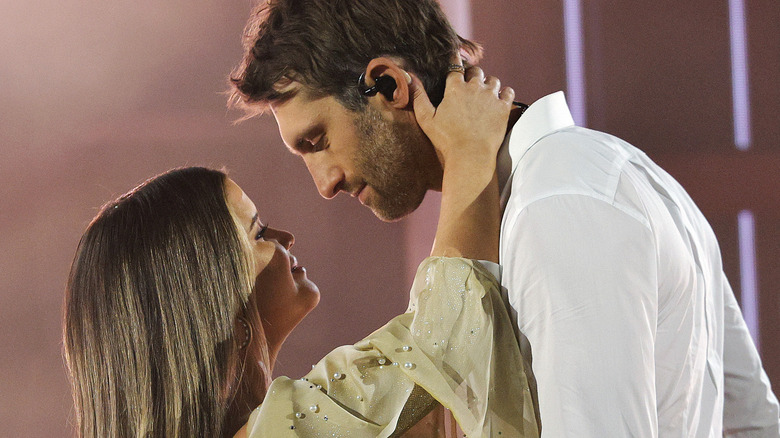The Real Meaning Behind Maren Morris' 'To Hell & Back'
Maren Morris' song "To Hell & Back" has been called "her most vulnerable yet," and after a quick scan of the lyrics, it's easy to see why. "You didn't save me / You didn't think I needed saving / You didn't change me / You didn't think I needed changing," she sings in the chorus, and anyone who's ever felt insecure (so, everyone) can totally relate.
It's obvious that this song is personally meaningful to the country music superstar and anyone would want to know a little more about the story that inspired it. And it turns out that while the love ballad is a single off of Morris' fifth studio album, it actually has a much longer history than you might think.
"It's an older song of mine," Morris said in an interview with ABC News Radio. "But I held on to it for years because I just loved it so much." So when did Morris first write the emotional jam? And, more importantly, why? Keep scrolling to find out.
The song is a real love story
"To Hell & Back" is dedicated to Maren Morris' husband, Ryan Hurd, but she actually wrote it before they were even officially a couple. "I wrote it back when — I don't even think we were really dating yet," Morris told ABC News Radio. "It was very early." Morris explained, "So I was just wanting to write a song that thanked him for loving every good, bad and ugly thing about me."
It makes sense that a genuine love like theirs would inspire such impactful lyrics as, "I wonder how you treasure / What anyone would call a flaw / You say a pearl without the pressure / Wouldn't be a pearl at all." Morris knows that it's a sentiment that rings true for most of us, which is part of why she chose to release it as a single during the pandemic.
"I think we're in such a reflective time being sort of stuck at home either by ourselves or with our families, with our dogs, we just have a lot of time to have some introspection," she said in a media Q&A. "I think it's all about your halo's a little bent, a little dirty, and that person still thinks you're the cat's meow," Morris said, explaining, "This is like, 'I will love you no matter what sort of ashes we're sitting in, because we're sitting in them together.'"


